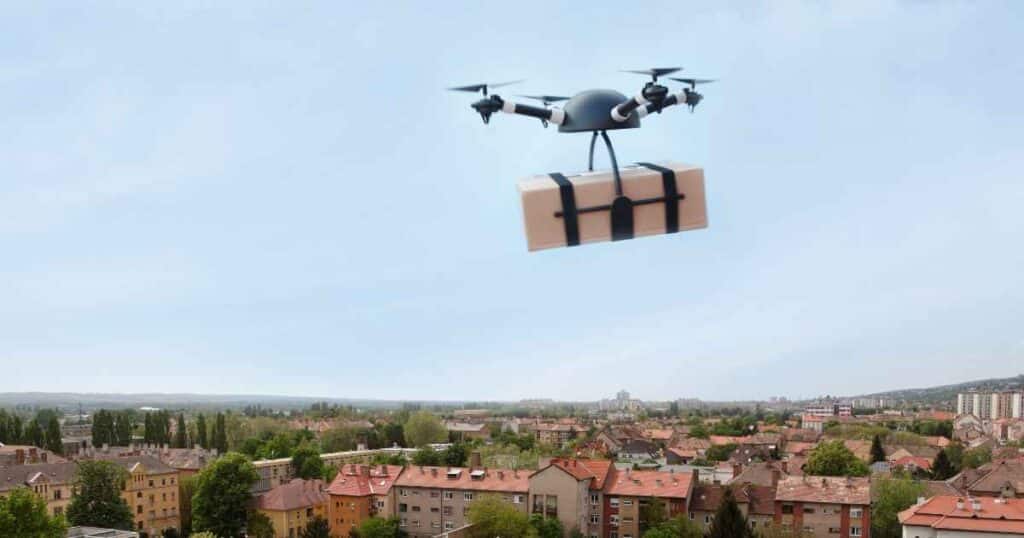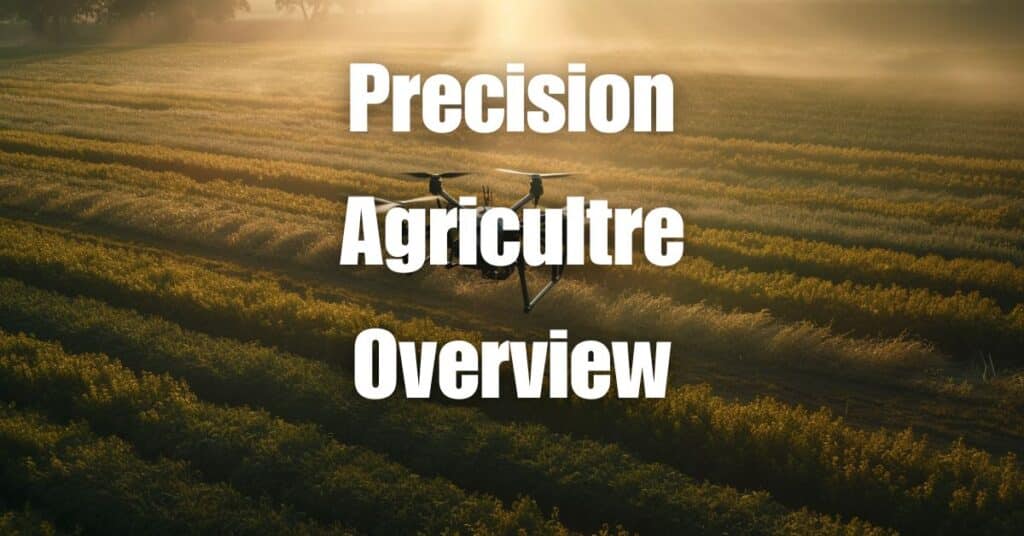The drone delivery business is taking off, and now is the perfect time to launch your own venture in this rapidly expanding market. With advancements in drone technology and an evolving regulatory landscape, starting a drone delivery business in 2023 offers numerous opportunities for savvy entrepreneurs. In this article, we’ll explore the state of drone delivery, the steps to building your business plan, navigating permits and certifications, and marketing your services to rise to the challenge of this innovative industry.
The State of Drone Delivery in 2023
Drone technology has come a long way in recent years, with significant improvements in flight range, payload capacity, and autonomous capabilities. As a result, drone delivery has become an increasingly viable option for businesses and consumers alike. With major players like Amazon and UPS leading the way, the drone delivery market is poised for exponential growth in the coming years.
Developing Your Business Plan
Identifying Your Target Market
To create a successful drone delivery business, it’s crucial to identify your target market. This could include businesses that require rapid delivery of small, high-value items, such as pharmaceuticals, electronics, or documents. Alternatively, you might target consumers in remote or hard-to-reach areas where traditional delivery methods are slow or inefficient. Research your local market to identify potential customers and their specific needs.
Assessing the Competition
Before launching your business, take the time to assess the competition in your area. This includes existing drone delivery services, as well as traditional delivery companies that might expand into drone delivery in the future. Understanding the competitive landscape will help you identify opportunities to differentiate your business and gain a competitive edge.
Creating a Pricing Strategy
Developing a pricing strategy for your drone delivery business is essential to ensure profitability. Consider factors such as operational costs, including drone maintenance, insurance, and regulatory fees, as well as the value of the service you’re providing to your customers. Your pricing strategy should be competitive, but also cover your expenses and allow for a reasonable profit margin.
Operational Considerations
As you plan your drone delivery business, consider the operational aspects, such as establishing a base of operations, designing efficient delivery routes, and implementing safety procedures. You’ll also need to develop a system for managing orders, tracking deliveries, and communicating with customers.
Obtaining the Necessary Permits and Certifications
FAA Regulations
To operate a drone delivery business in the United States, you’ll need to comply with Federal Aviation Administration (FAA) regulations. This includes obtaining a Part 107 Remote Pilot Certificate, registering your drones, and following operational guidelines, such as altitude limits, line-of-sight requirements, and airspace restrictions.
Local and State Requirements
In addition to FAA regulations, you may also need to obtain permits or comply with local and state requirements for drone operations. Be sure to research the specific rules in your area and stay up-to-date with any changes to ensure your business remains compliant.
Insurance Coverage
Insurance is essential for any drone delivery business, as it protects you from potential liabilities related to property damage, personal injury, or privacy violations. Speak with an insurance agent to determine the appropriate coverage for your specific operations.
Building Your Drone Fleet
Choosing the Right Drones for Your Business
Selecting the right drones for your delivery business is crucial to ensure efficiency, safety, and customer satisfaction. Consider factors such as payload capacity, flight range, and autonomous capabilities when evaluating potential drone models. Some popular options for drone delivery businesses include the DJI Matrice 300 RTK and the Parrot Anafi USA.
Investing in Reliable and Efficient Drone Technology
As drone technology continues to evolve, it’s important to invest in reliable and efficient models that meet the needs of your business. Look for drones with advanced features, such as obstacle avoidance, precise GPS navigation, and secure communication systems, to ensure smooth and successful deliveries.
Maintenance and Training
To keep your drone fleet in optimal condition, establish a regular maintenance schedule and train your staff in proper drone handling and care. Regular maintenance will help prevent costly repairs and downtime, while skilled operators will ensure the safe and efficient operation of your drones.
Marketing Your Drone Delivery Business
Building a Strong Online Presence
In today’s digital age, having a strong online presence is essential for any business. To establish your drone delivery business, start by creating a professional website that showcases your services, pricing, and the unique benefits of using drones for delivery. Ensure your website is optimized for search engines, with a focus on the keywords “drone delivery business.”
In addition to your website, create and maintain a presence on social media platforms such as Facebook, Twitter, and Instagram. Share engaging content that highlights the benefits of drone delivery, as well as images and videos of your drones in action. Regularly interact with your audience to build trust and credibility.
Furthermore, consider using targeted online advertising to reach potential customers in your service area. Google Ads and Facebook Ads are popular platforms that allow you to create highly targeted campaigns based on location, demographics, and interests.
Networking and Partnerships
Forming strategic partnerships and networking with relevant businesses and organizations can help you establish a strong reputation in the drone delivery industry. Attend industry conferences, trade shows, and networking events to connect with potential partners, customers, and suppliers.
Consider partnering with local businesses that could benefit from your drone delivery services, such as restaurants, pharmacies, and retailers. By offering a unique value proposition to these partners, you can increase your visibility and customer base.
Providing Exceptional Customer Service
Customer satisfaction is crucial for the success of any business. Ensure that your drone delivery business offers exceptional customer service by providing timely deliveries, transparent communication, and swift resolution of any issues or concerns.
Encourage satisfied customers to leave reviews on your website or on review platforms like Google My Business and Yelp. Positive reviews can help build trust and credibility, attracting new customers to your drone delivery business.
Overcoming Challenges in the Drone Delivery Industry
Privacy Concerns
Privacy is a significant concern for many people when it comes to drone technology. To address this issue, ensure that your drones are equipped with cameras that only record necessary delivery information and are not invasive. Communicate your commitment to privacy to your customers and adhere to all relevant privacy regulations and guidelines.
Safety and Security
Ensuring the safety and security of your drone fleet is critical. Invest in high-quality drones with advanced safety features, such as obstacle avoidance, GPS tracking, and secure communication channels. Regularly inspect and maintain your drones to minimize the risk of accidents or malfunctions.
Additionally, train your pilots and operators to follow safety protocols and stay up-to-date with the latest drone regulations. Obtain all necessary permits and certifications, such as the FAA’s Part 107 certification in the United States, to demonstrate your commitment to safety and compliance.
Weather Conditions and Logistical Hurdles
Weather conditions and logistical challenges can impact the efficiency of your drone delivery operations. To mitigate these issues, invest in drones capable of handling various weather conditions and equip them with sensors that can detect and avoid obstacles.
In addition, develop contingency plans for deliveries that may be affected by adverse weather or unforeseen logistical issues. This could include backup delivery options, such as traditional courier services, or rescheduling deliveries when necessary.
Looking to the Future: The Potential of Drone Delivery
The drone delivery industry holds immense potential for growth and innovation. As technology continues to advance, we can expect drones to become faster, more efficient, and capable of carrying heavier payloads. This will enable businesses to expand their service offerings and reach a wider customer base.
Moreover, as drone delivery becomes more mainstream, we may see the development of advanced drone infrastructure, such as designated flight corridors and drone docking stations. This will further streamline delivery operations and help to overcome the logistical challenges faced by the industry today.
In the long run, the integration of drone deliveries with smart city initiatives and the Internet of Things (IoT) will create a seamless and interconnected ecosystem for businesses and consumers alike. Drones may also play a crucial role in disaster relief and humanitarian efforts, as they can quickly deliver essential supplies to hard-to-reach areas.
To capitalize on the potential of the drone delivery industry, entrepreneurs should stay informed about the latest technological advancements and be prepared to adapt their business strategies accordingly. By overcoming the challenges in this emerging field and embracing innovation, you can position your drone delivery business for long-term success and growth.
Addressing Common Questions about Drone Delivery Businesses
How Can I Start a Drone Delivery Business?
To start a drone delivery business, follow these steps:
- Develop a comprehensive business plan that addresses your target market, competition, pricing strategy, and operational considerations.
- Obtain the necessary permits, certifications, and insurance coverage to comply with federal, state, and local regulations.
- Invest in a reliable and efficient drone fleet, and establish a regular maintenance schedule.
- Implement a robust marketing strategy that includes building an online presence, networking, and forming strategic partnerships.
Can a Drone Business Be Profitable?
Yes, a drone delivery business can be profitable if it effectively meets the needs of its target market and operates efficiently. Profitability depends on factors such as pricing strategy, operational costs, market demand, and competition. By offering a valuable service, streamlining operations, and differentiating your business from competitors, you can increase your chances of achieving profitability.
How Much Does a Drone Delivery Cost?
The cost of a drone delivery varies depending on factors such as distance, payload weight, and operational expenses. Pricing may be determined by a flat fee per delivery, a per-mile rate, or a combination of both. It’s essential to develop a pricing strategy that covers your costs while remaining competitive in the market. Additionally, consider offering promotional discounts or tiered pricing structures to attract customers and incentivize repeat business.
Is Anyone Doing Drone Delivery?
Yes, several companies are currently offering drone delivery services or piloting drone delivery programs. Some notable examples include:
- Wing, a subsidiary of Alphabet, offers drone delivery services for various products, including food, medicine, and small consumer items, in select cities across the United States, Australia, and Finland.
- Amazon Prime Air is developing a drone delivery system to transport packages to customers within 30 minutes of ordering.
- UPS Flight Forward, a subsidiary of UPS, has received FAA approval to operate a drone airline and has begun testing drone deliveries in select markets.
These examples demonstrate the growing interest and investment in drone delivery services, indicating the potential for further expansion in the industry.
Launching a drone delivery business in 2023 offers an exciting opportunity to capitalize on the growing demand for fast, efficient, and environmentally friendly delivery solutions. By developing a solid business plan, obtaining the necessary permits and certifications, building a reliable drone fleet, and marketing your services effectively, you can rise to the challenge of this rapidly expanding industry.
As you embark on your journey to start a drone delivery business, consider visiting Blue Falcon Aerial’s comprehensive guide on building and growing your drone business for valuable insights and advice. And if you require any drone services for your new venture, don’t hesitate to contact Blue Falcon Aerial for expert assistance.




